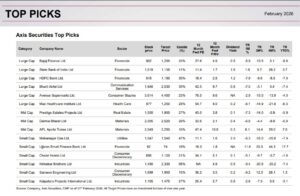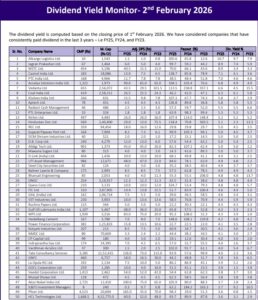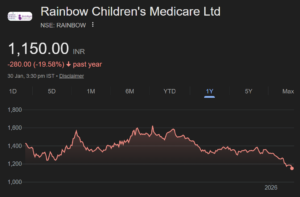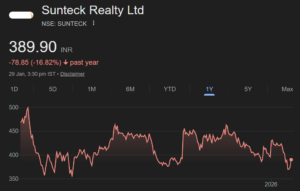
Securities and Exchange Board of India (‘SEBI’/ ‘Board’) in its meeting held on November 19, 2014 approved some significant amendments in ‘Prohibition of insider trading regulations’, ‘Listing agreement’, ‘Delisting of Equity Shares Regulations’, ‘Mutual Funds regulations’ etc. Amendments to respective regulations are yet to be notified/ released. The complete implications could be ascertained once the amendments are released. This Alert summarizes key amendments approved by SEBI in its meeting based on the press release of November 19, 2014.
Delisting of Equity Shares Regulations, 2009
► SEBI had issued ‘Discussion paper on review of Delisting regulations’ on May 09, 2014 for public comments and received various suggestions. Now SEBI has approved certain amendments in ‘SEBI (Delisting of Equity Shares) Regulations, 2009’ (‘Delisting Regulations’) in its meeting. Few key amendments approved are as under:
► Change in the threshold limit for successful delisting – Under the Delisting Regulations, delisting was considered successful when promoters shareholding (along with the persons acting in concert) reached higher of 90% of the total issued shares of a particular class or aggregate of pre offer promoter shareholding and 50% of the offer size. Now, Delisting Regulations have been amended to consider delisting successful when promoters reach:
► 90% of the total share capital of the company; and
► atleast 25% of the number of public shareholders (holding shares in dematerialized mode as on date of Board of Directors meeting approving such delisting proposal) tender their shares.
► Determination of offer price – Under the Delisting Regulations, the offer price was determined through Reverse Book Building (‘RBB’) process (ie price at which maximum number of public shareholders tendered their shares). SEBI has now approved RBB process with modification, according to which, offer price would be a price at which shareholding of promoter reaches the prescribed threshold limit of 90%.
► Joint framework with SEBI (Substantial Acquisition of Shares and Takeovers) Regulations, 2011 (‘Takeover Regulations’) –
An option has been granted to acquirer pursuant to triggering Takeover Regulations to delist the shares of company directly through Delisting Regulations. However, in case of a failed delisting attempt, promoters
are required to carry out mandatory open offer process as per the Takeover Regulations and pay an interest @ 10% per annum for the delayed open offer.
► Use of stock exchange platform – Under the Delisting Regulations, offer for tendering of shares was carried out through off market transactions. However, Board has approved the transfer of shares pursuant to delisting proposal to be done on the platform of stock exchange.
► Appointment of Merchant Banker – Under the Delisting Regulations, the responsibility of appointing merchant banker was on the promoters, however, now Board of Directors of the company will be required to appoint merchant banker.
► Prohibition on making a delisting proposal –
Promoter/ promoter group will be now prohibited from making a delisting offer if any promoter/ promoter group entity has sold shares during 6 months prior to the date of the Board of Directors meeting approving the delisting proposal.
► Timeline – Delisting timeline has been reduced from 137 calendar days (around 117 working days) to 76 working days. The change in process which results in reduction of timelines has not yet been disclosed.
► Exemption from RBB process – Earlier companies with paid up capital of Rs 1 crore (with no trading in its shares since past one year) were exempted from carrying out RBB process. However, now this clause has been amended to exempt companies with paid up capital not exceeding Rs 10 crores and net worth not exceeding Rs 25 crores subject to compliance of certain conditions.
► Additional powers to SEBI – SEBI has been empowered to relax any strict enforcement/ compliance with the provisions of the Delisting Regulations.
Prohibition of Insider Trading Regulations, 2014
► SEBI in 2013 had set up a high level committee to review the SEBI (Prohibition of Insider Trading) Regulations, 1992 (‘Insider Trading Regulations’). Committee submitted its report on December 07, 2013.
► In a move to align the Insider Trading Regulations in India with international practices and to strengthen the legal and enforcement framework, SEBI has approved to bring new SEBI (Prohibition of Insider Trading) Regulations, 2014 with the following key features:
► Enhanced coverage of Insider – Definition of ‘Insider’ has been widened to include any person with access to unpublished price sensitive information (‘UPSI’) including persons connected on the basis of contractual, fiduciary or employment relationship; ► UPSI defined as information not generally available and which may impact the price
► Connected persons – Immediate relatives now to be presumed as connected persons and onus of establishing that they did not possess UPSI shall be on such connected persons.
► Wider disclosure requirements:
► Company is now required to disclose UPSI at least 2 days prior to trading by officials
► Officials with access to UPSI all-round the year to formulate their pre-determined trading plans and discloses the same to stock exchanges
► However, for legitimate business deals, UPSI can be communicated with certain safeguards
► Prohibition on directors and key management personnel to trade in derivatives of the securities of the company
– This is in line with Companies Act, 2013.
E&Y’s Expert Comments
The SEBI board meeting has approved various amendments to the extant securities laws as a measure to improve corporate governance. Compulsory tender by minimum number of shareholders will address the concern of a few numbers of shareholders influencing the delisting price. For the said purpose, Discussion paper had proposed threshold as 50% of total number of public shareholders, while the SEBI in its meeting has approved the same at 25% of total number of public shareholders. This requirement of 25% may pose a significant challenge in implementing delisting process where large numbers of public shareholders hold nominal shares or significant stake is concentrated in few hands. This aspect may be evaluated on case to case basis.
Permitting use of stock exchange for delisting offers, buyback, takeover code places delisting at par with shares traded on stock exchange with favourable tax treatment.
Condition that ‘Board of Directors shall approve the proposal for delisting only after satisfying itself that delisting is in the interest of shareholders’ appears bit strange especially when the delisting process will be carried out at a price determined by the public shareholders.
There is an attempt to align Takeover and delisting regulations, by opening a window of direct delisting. This is a welcome step.
The amendments to the regulations are now awaited. Review of such amendments to regulations, whenever notified, is expected to bring in clarity to various issues/ open areas as approved by SEBI in its Board meeting.







